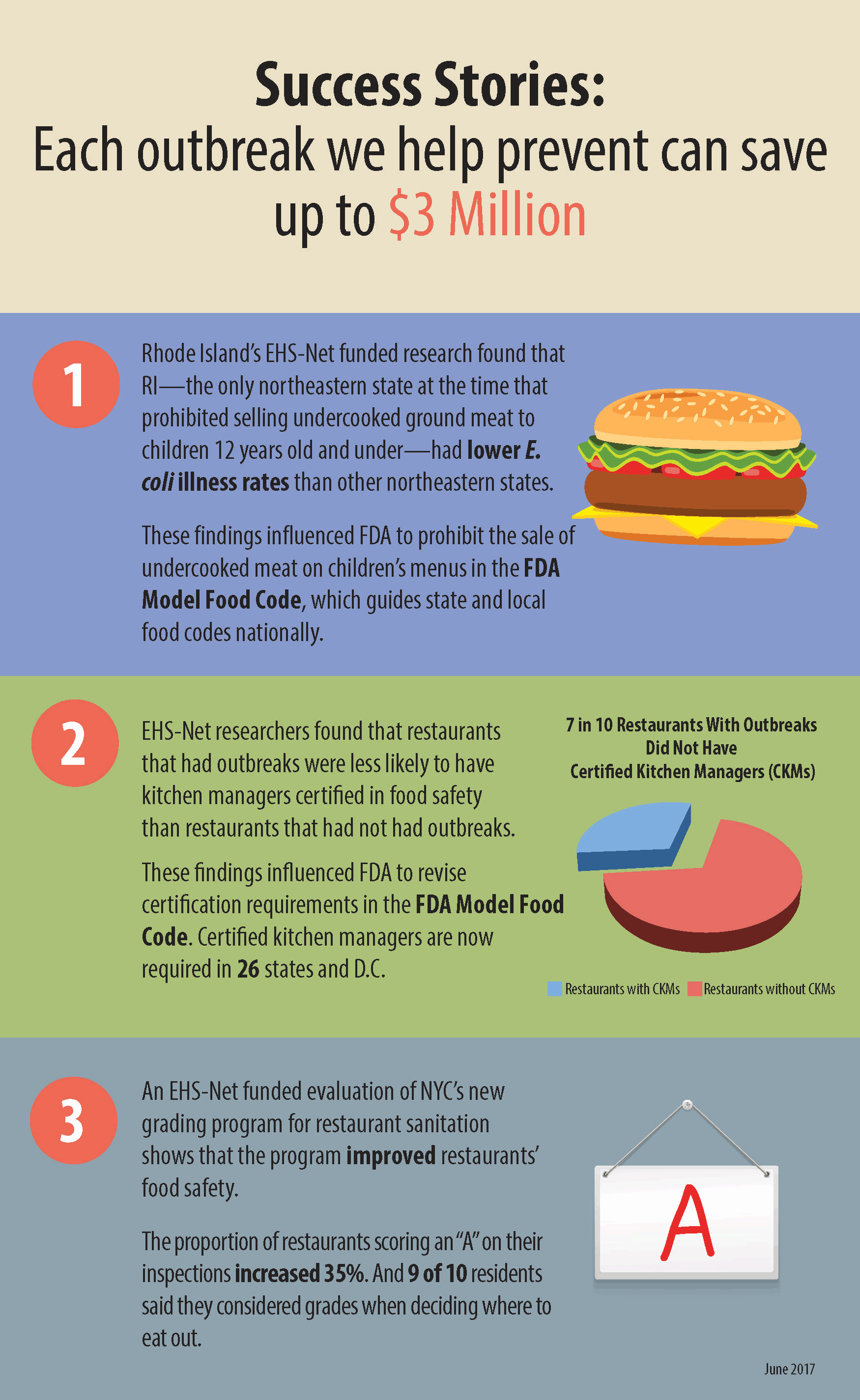
The Issue
- Foodborne illnesses cost the U.S. about $15.6 billion per year.
- Each year, approximately 1 in 6 Americans gets foodborne illness.
- Foodborne illnesses result in over 3,000 deaths each year.
- 60% of outbreaks occur at restaurants.
Unlike other organizations fighting foodborne illness, CDC’s National Center for Environmental Health (NCEH) helps prevent outbreaks by understanding environmental factors that contribute to those outbreaks.
We conduct practice-based research that is used to develop prevention tools, training and guidance.
- The Environmental Health Specialists Network (EHS-Net) connects environmental health specialists, epidemiologists, and lab professionals from CDC, FDA, USDA, and 8 state and local health departments.
- Since 2000, NCEH has funded state and local health departments for >20 retail food safety studies, leading to 37 publications.
- NCEH provides the National Environmental Assessment Reporting System (NEARS) for health departments.
- Our e-Learning course on environmental assessments is used by environmental health professionals and food safety officials in 50 states and D.C.
- Plain language summaries guide outbreak prevention.
Success Stories: Each outbreak we help prevent can save up to $3 million
- Rhode Island’s EHS-Net funded research found that RI—the only northeastern state at the time that prohibited selling undercooked ground meat to children 12 years old and under—had lower E. coli illness rates than other northeastern states. These findings influenced FDA to prohibit the sale of undercooked meat on children’s menus in the FDA Model Food Code, which guides state and local food codes nationally.
- EHS-Net researchers found that restaurants that had outbreaks were less likely to have kitchen managers certified in food safety than restaurants that had not had outbreaks. These findings influenced FDA to revise certification requirements in the FDA Model Food Code. Certified kitchen managers are now required in 26 states and D.C. 7 in 10 restaurants with outbreaks did not have Certified Kitchen Managers (CKMs).
- An EHS-Net funded evaluation of NYC’s new grading program for restaurant sanitation shows that the program improved restaurants’ food safety. The proportion of restaurants scoring an“A”on their inspections increased 35%. And 9 of 10 residents said they considered grades when deciding where to eat out.


































No hay comentarios:
Publicar un comentario